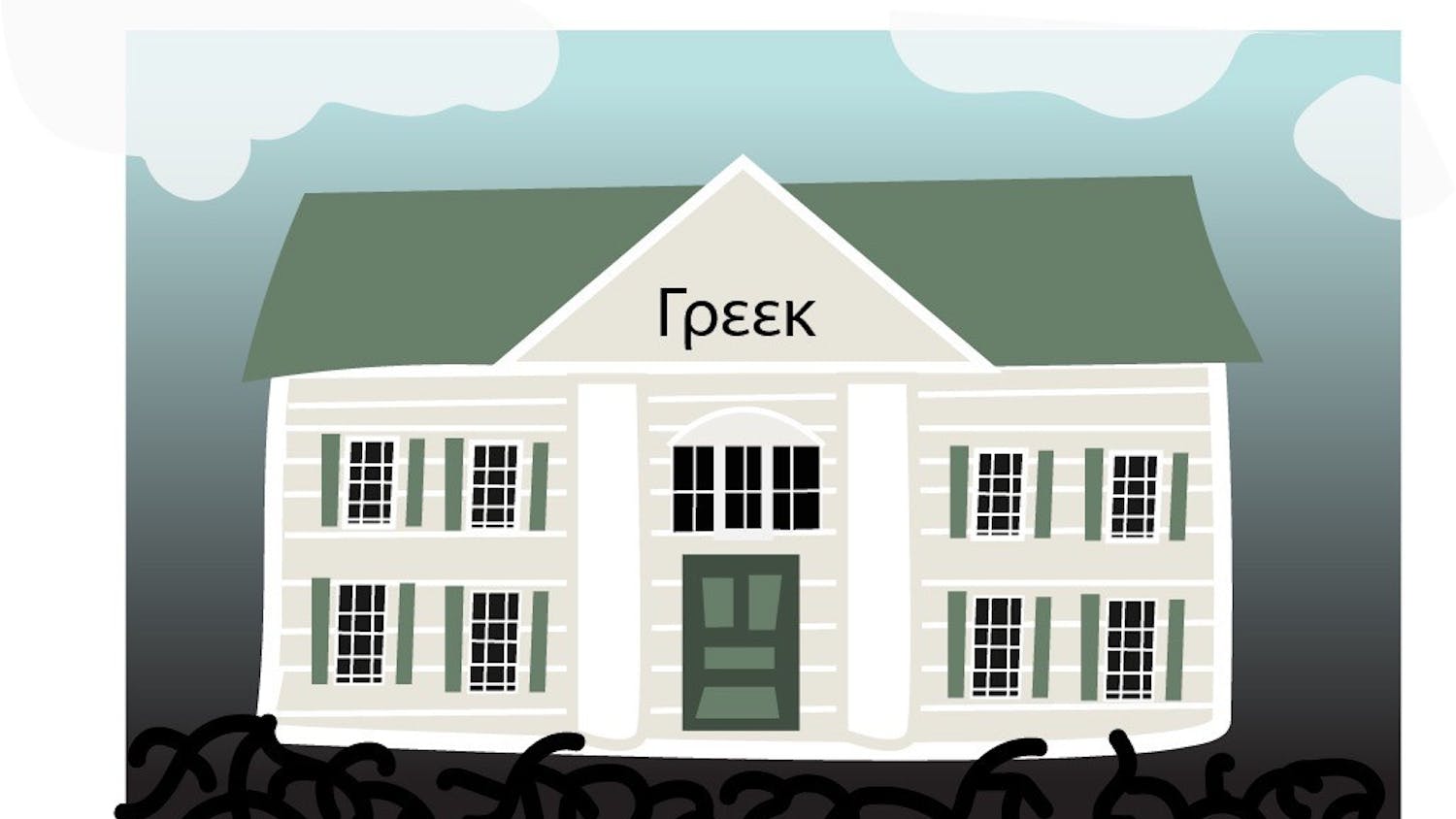The 20X Challenge, a 20-day course of education, fundraising and discussion on the topic of diversity and inclusion in Greek houses, came to a close on July 21, leaving participants optimistic about the future of racial inclusivity in Dartmouth Greek life — though no specific changes to Greek spaces have yet been publicized.
The 20X Challenge sought to encourage participating Greek houses and members to form anti-racist habits with an eye toward past injustices and racism in Greek life, as well as promote discussion on how the Greek system may need to be changed to further racial equity. All IFC and ISC houses were involved, as well as Scarlett Hall — formerly known as Sigma Alpha Epsilon.
“The 20X Challenge is a very first step in mobilizing the Greek system towards addressing the anti-Black racism that is perpetuated in our own system,” said Cait Deerin ’22, Kappa Delta Epsilon sorority’s 20X philanthropy chair and a member of the 20X Challenge’s leadership team.
The challenge had raised $22,000 as of its conclusion, exceeding its $20,000 goal. The funds will be divided among three organizations: the NAACP Legal Defense and Educational Fund, JAG Productions, a Black theater company operating in White River Junction, Vermont and The Loveland Foundation, an organization providing therapy to Black women and girls. Positive Tracks, a partner philanthropic organization based in New Hampshire and Massachusetts, helped manage the fundraising efforts.
Chi Delta sorority’s 20X president Yuna Kim ’22 found the challenge to be important given the nature of a remote term.
“Because we don’t have sophomore summer … the opportunity for [’22s] to get close was never given to us, so naturally people stick with their friend groups, which [are] often divided across racial lines,” she said.
Sigma Nu’s 20X risk chair Brandon Zhou ’22 said that despite the program’s branding as a Greek house-oriented project, he felt that he participated both “as a member of the Greek community and a member of the Dartmouth community.”
In addition, Zhou said that Sig Nu personalized the challenge to the house.
“[We] added things to this challenge that we felt were specific to our house that would make our own spaces and our own members better ... like meeting outside [and] having our own conversations.”
Epsilon Kappa Theta sorority’s 20X president Laurel Semprebon ’22 said she found mobilizing fellow members more difficult, however.
“The willingness of people to participate was a little low … communication and organization is very hard to do all virtually,” she said.
Some participants were hopeful that discussions sparked by the program will impact the functioning of Greek houses in the future, spurring longer-term institutional change.
Zhou mentioned that in his house discussions, one suggested change was making the position of the diversity and inclusivity chair “more involved and more integrated into the house activities.”
In discussions with fellow members of Sig Nu, members suggested ideas like coffee dates with members to acquaint the potential new member with the house and “much more aggressively and much more publicly” publishing the information about Sig Nu’s rush chairs and financial aid. Both, Clark said would increase inclusivity.
“It’s really hard for a person of color [who is a potential new member] to get their foothold in the house,” said Thomas Clark ’22, Sig Nu’s 20X philanthropy chair and member of the challenge’s leadership team.
Kappa Kappa Kappa’s 20X president Max Pumilia ’22 said the fact that knowing people in a house ahead of time increases a potential new member’s chances of getting a bid “can often lead to undesirable homogeneity.”
Kim said that this issue was also discussed in Chi Delt, with suggestions for how the sorority could “do recommendations a little more fairly.”
In addition, Kim said the house is “considering doing more inclusive activities during meetings to give sisters a chance to meet each other in more organic ways.”
Deerin mentioned a discussion between the Greek houses on day 21 of the challenge which she hopes will produce “a list of concrete steps” that KDE can follow. Some of the steps suggested were expanding the role of the house historian, encouraging greater transparency about the rush process and the financial commitment of Greek life and establishing a KDE diversity and inclusivity task force.
One idea that attracted Semprebon was “changing the ways in which houses institute fines,” which disproportionately affect lower income students and provide another obstacle to inclusivity, she said. However, she emphasized that larger structural change to the Greek community as a whole would be the most effective in promoting racial diversity.
“If we’re gonna talk about being inclusive in the Greek system as a whole, I think it’s really important to the [sorority-wide] rush and recruitment process,” she said.
In addition to generating ideas for changes to rush and house processes, both KDE’s diversity and inclusion chair Margaret Hubble ’21 and Deerin saw the 20X Challenge as promoting a cultural change.
“[The 20X Challenge] definitely has brought a new conversation to Greek spaces,” Hubble said. “Conversations between houses … might be one of the more long-lasting impacts of this challenge.”
Pumilia agreed. “The most productive part of it was … opening a dialogue about these issues,” he said.
One of the most important aspects of the challenge was “making sure that we’re not putting the burden of educating [other members] on minorities and people of color,” Semprebon said. “And if there are issues, we educate ourselves.”




